About Us
- 🐾 About Us
Rock and Pampa — Uruguay Small Wild Cat Program is a conservation project dedicated to protecting small wild cats in Uruguay and southern Brazil. The program is coordinated by M.Sc. Santiago Turcatti Oviedo and combines scientific research, environmental education, and hands-on conservation actions. We focus on studying, monitoring, and safeguarding these species, which are essential for the health and balance of ecosystems, while raising public awareness and promoting real, lasting conservation efforts.
- 🎯 Mission
The mission of the Uruguay Small Wild Cat Program - Rock and Pampa is to ensure the survival of small wild cats and their natural habitats in Uruguay and Southern Brazil. This mission is achieved through collaboration with local partners throughout the region to identify and mitigate the threats facing small wild cats.
- 🐆 Species
- Pampas Cat (Leopardus munoai) Our flagship species. This small wild cat is critically endangered in Uruguay due to habitat loss and other human-related threats. After more than 10 years without confirmed sightings, our team successfully documented a live record of the species in the country.
- Margay (Leopardus wiedii) An arboreal wild cat also classified as endangered in Uruguay. Through our fieldwork, we have recorded the species in previously undocumented areas, helping to expand its known distribution in the region.
- Geoffroy's Cat (Leopardus geoffroyi) Although this species faces fewer immediate threats, Geoffroy's cat remains vulnerable to habitat loss and human-wildlife conflict. Continuous monitoring is essential to ensure its long-term conservation.
- 🌱 Actions
- Monitoring and studying small wild cat populations using camera traps.
- Identifying and protecting key habitats.
- Monitoring roadways to document wildlife-vehicle collisions.
- Installing traffic signs to prevent roadkill.
- Producing and sharing scientific knowledge to strengthen conservation strategies.
- Developing environmental education programs and raising awareness in local communities.
- Collaborating with institutions, researchers, and conservationists in Uruguay and Brazil.
Our Conservation Actions
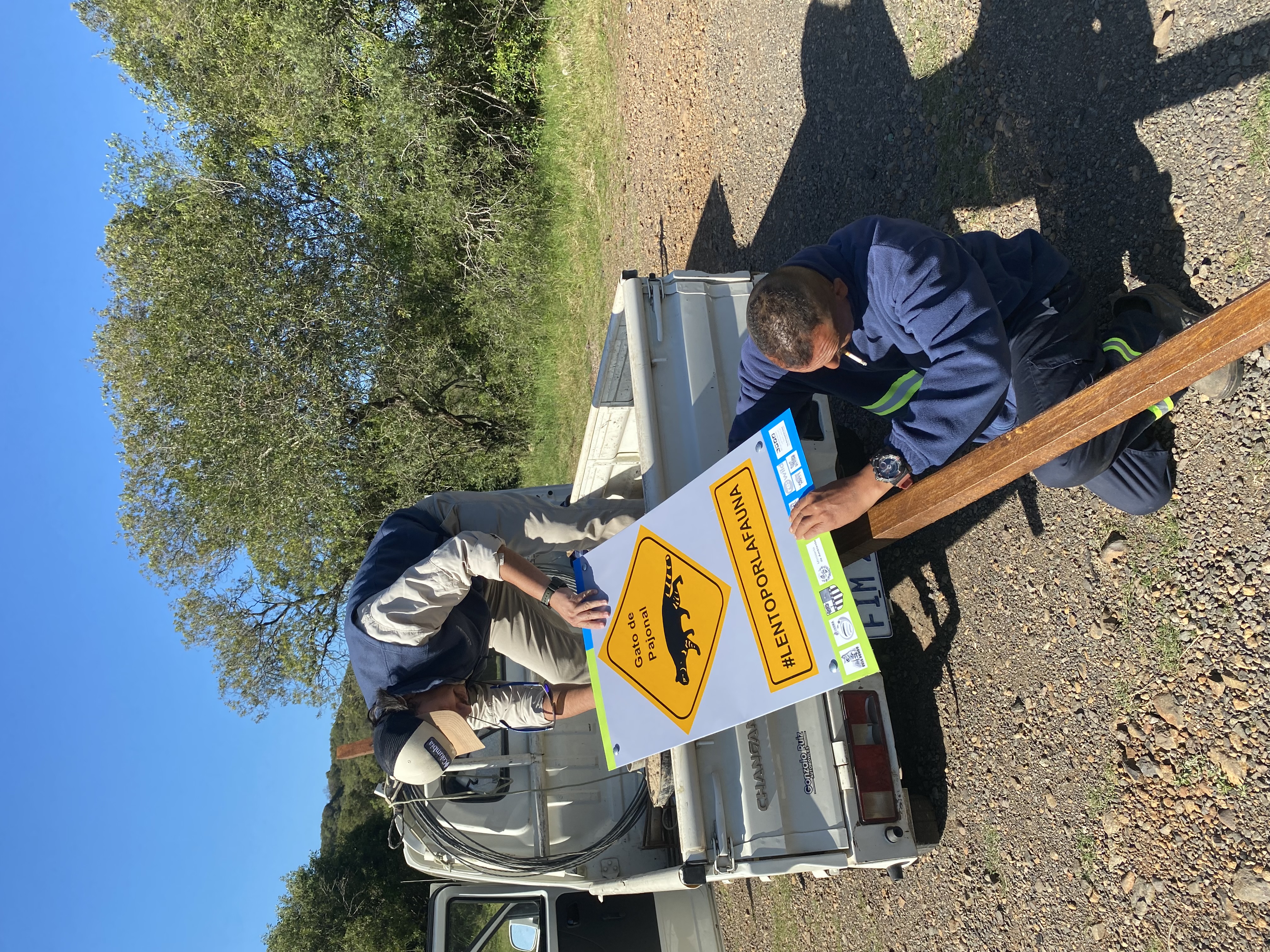
Monitoring wild cat populations
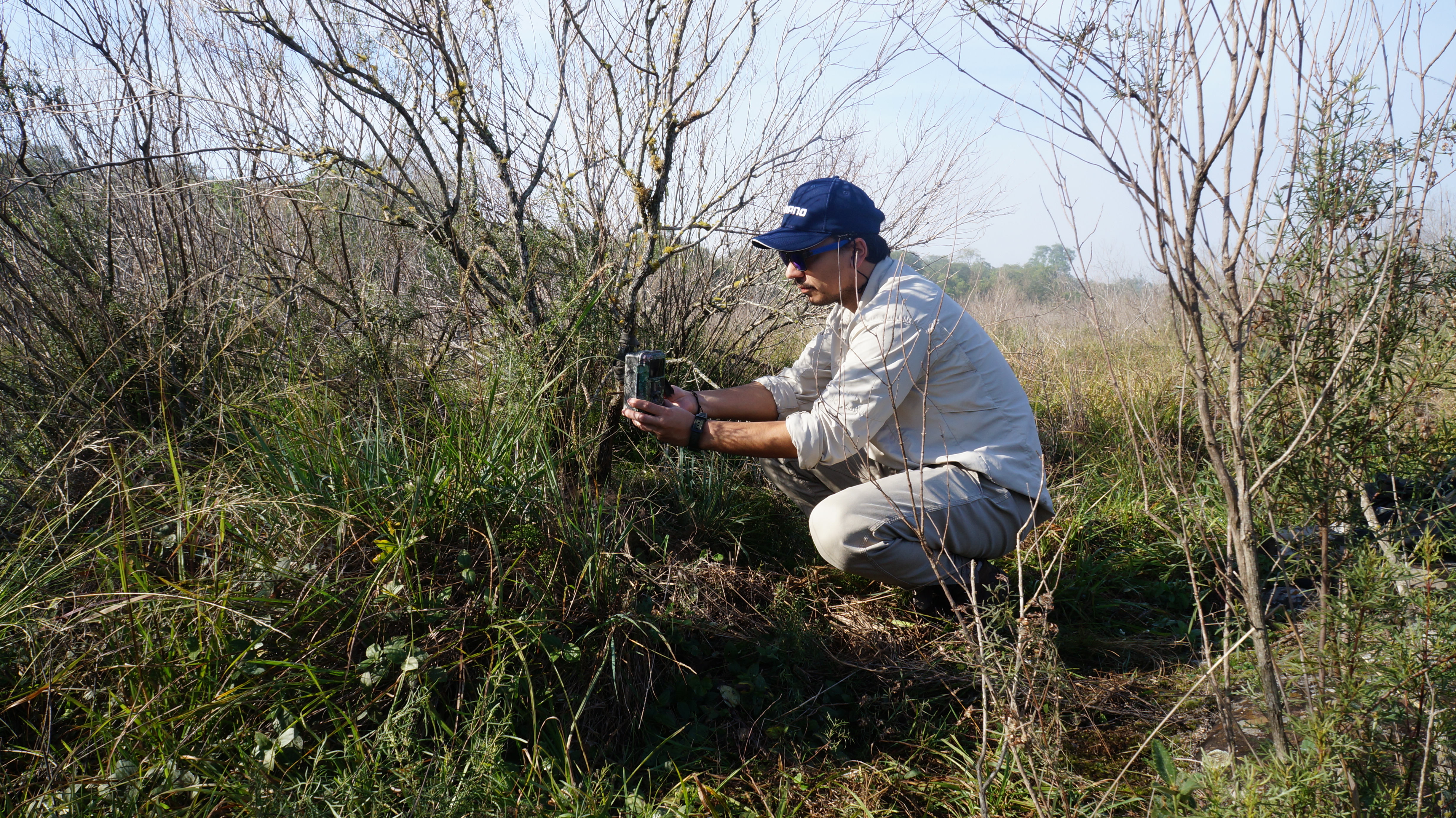
Field research
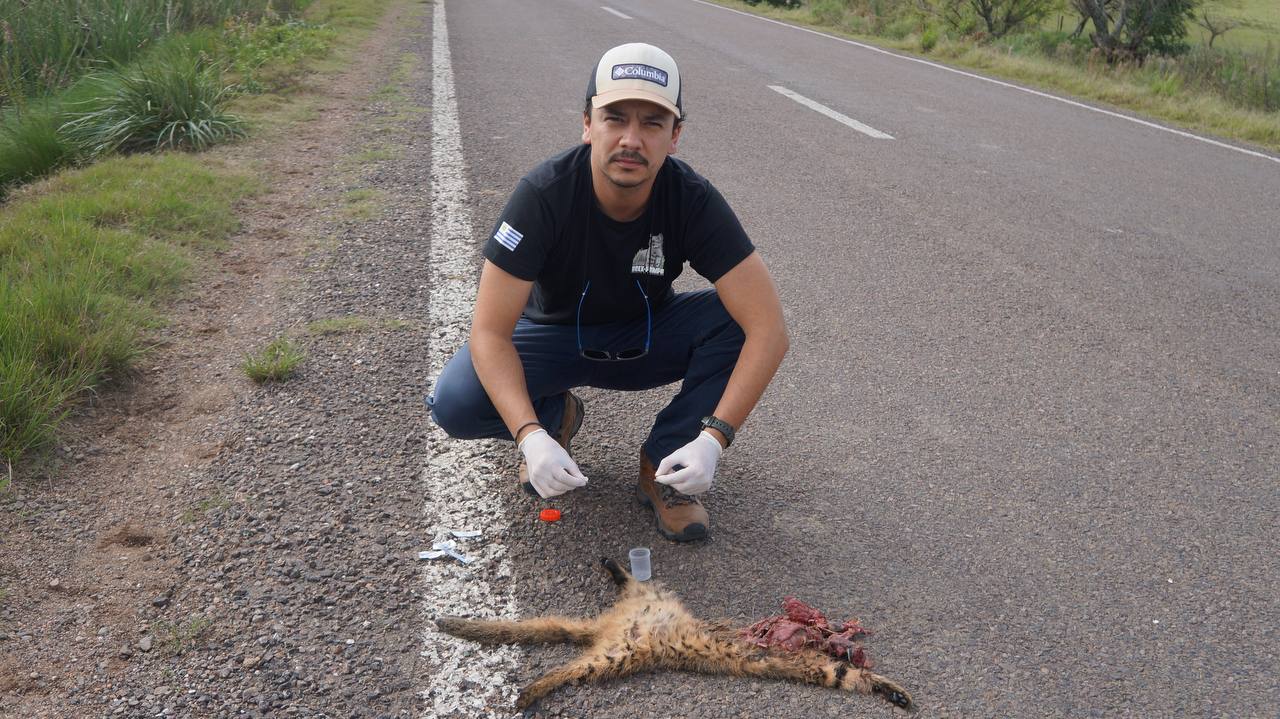
Road safety measures
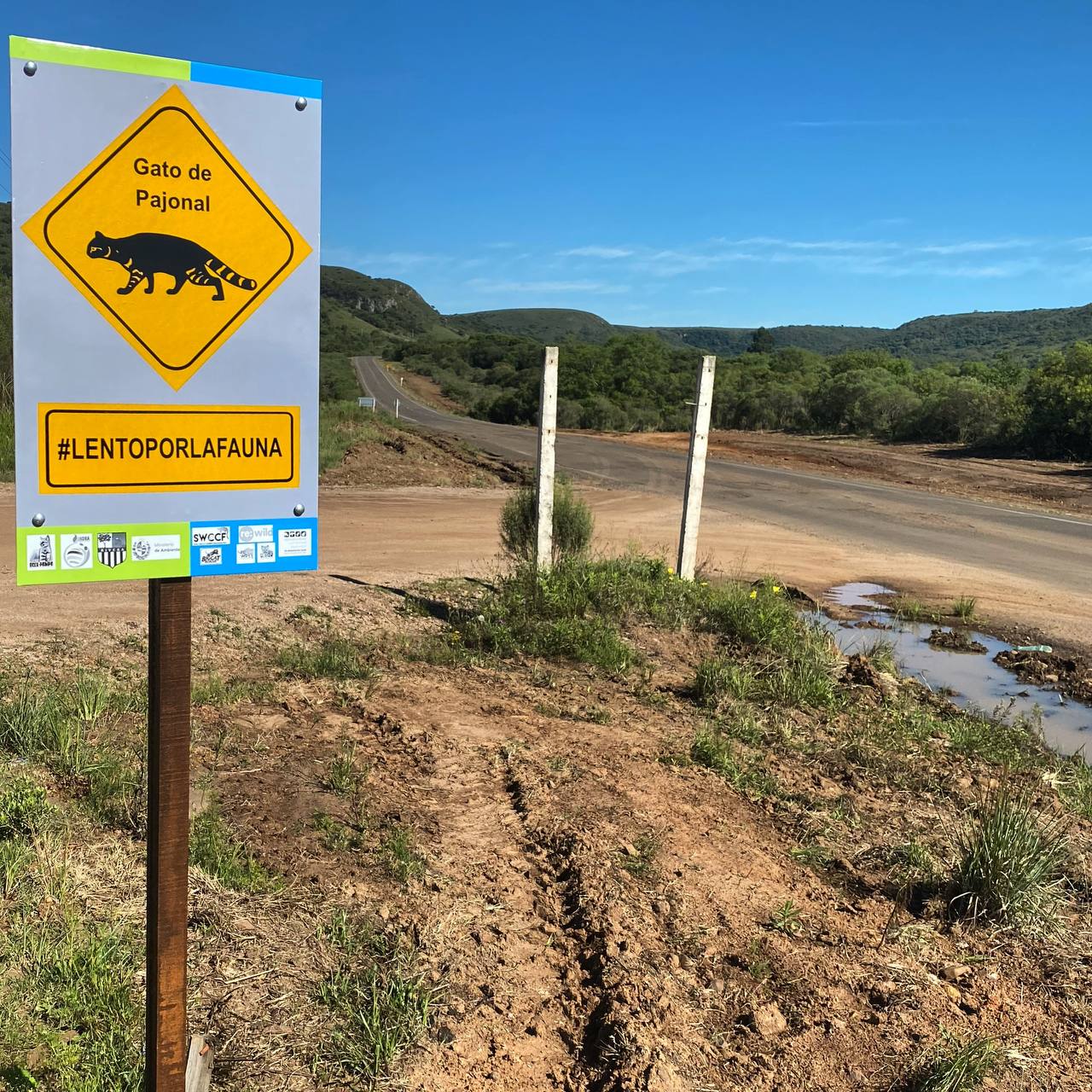
Habitat assessment
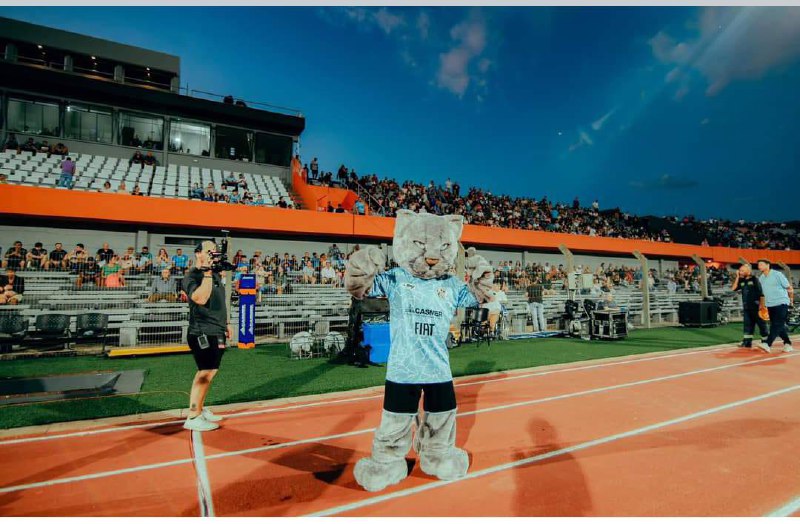
Community engagement
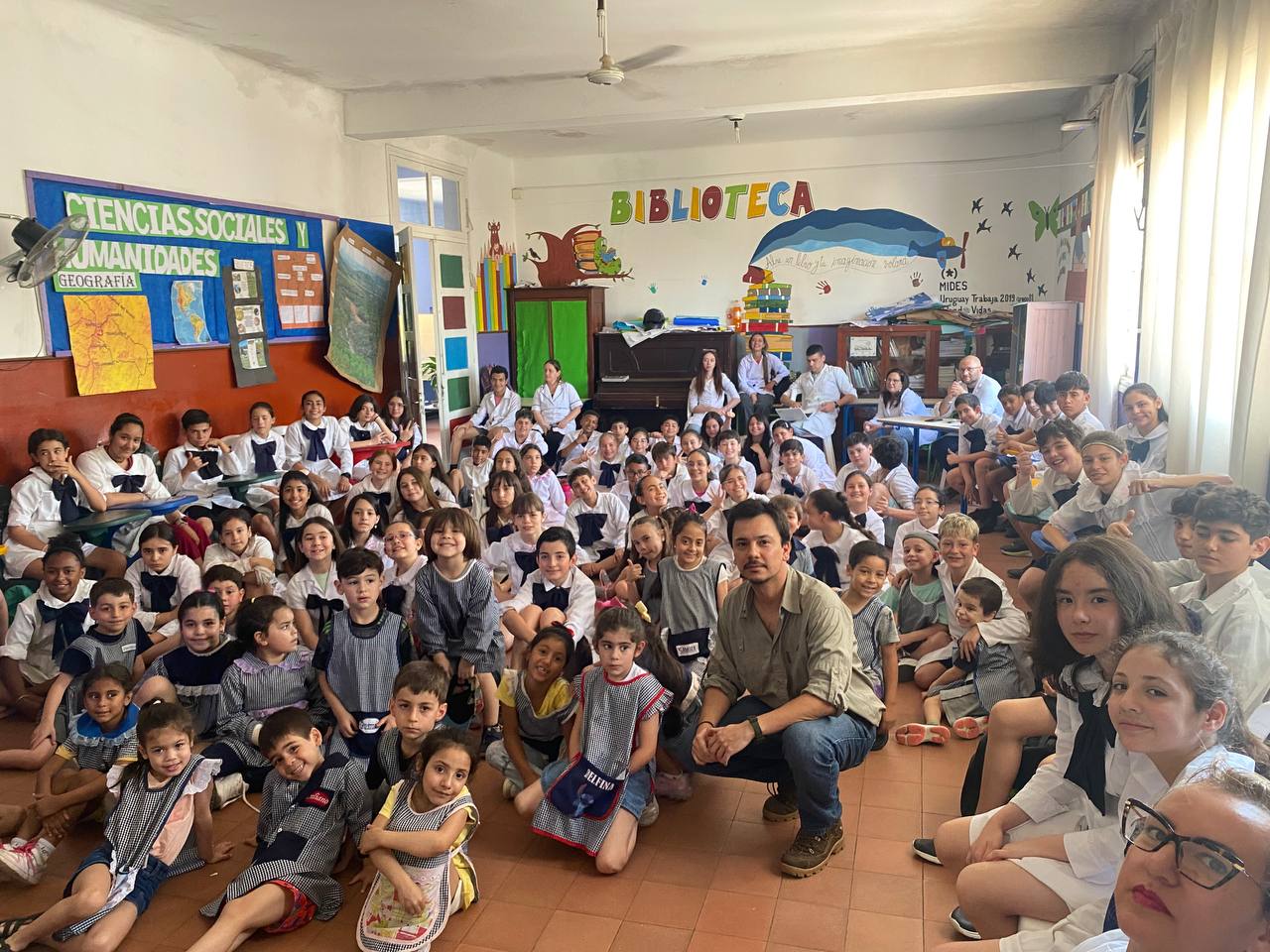
Environmental education
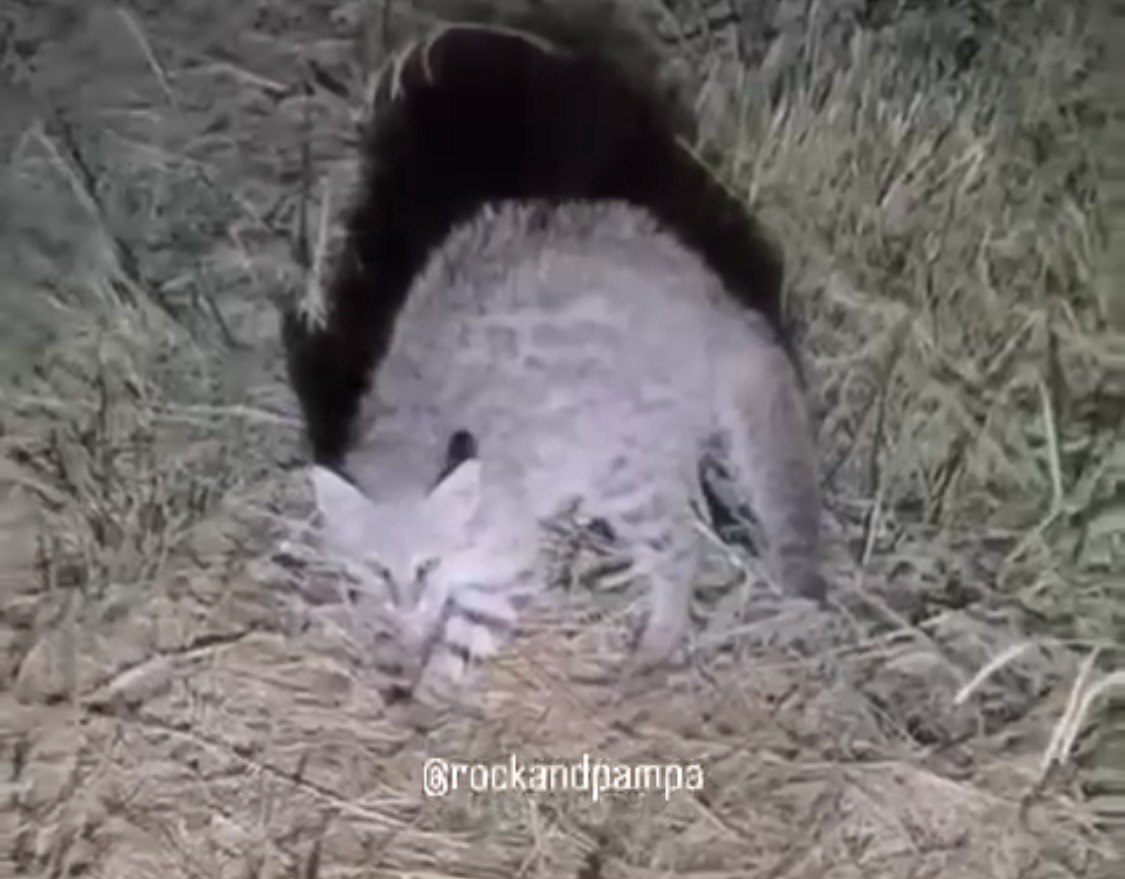
Scientific research
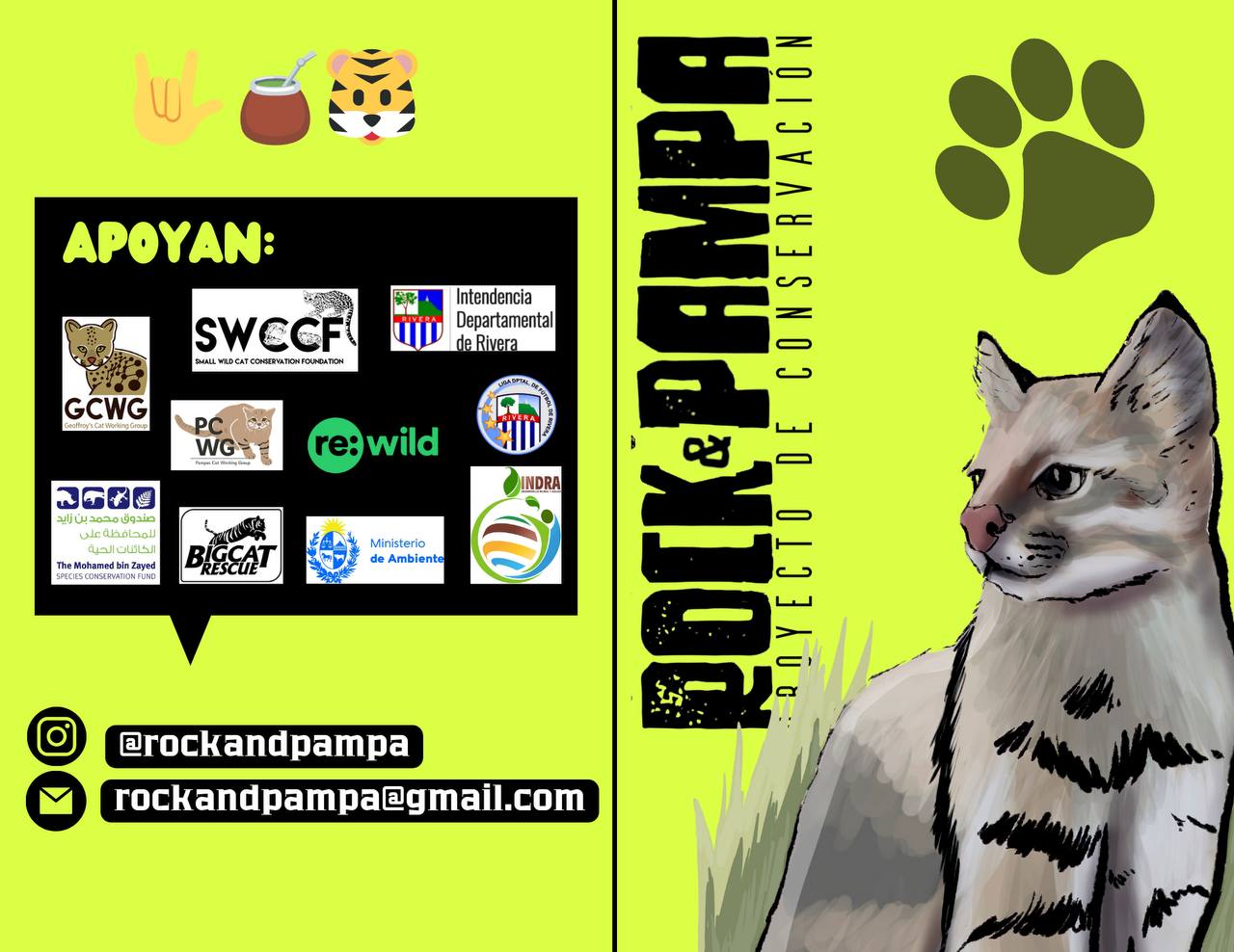
Species protection
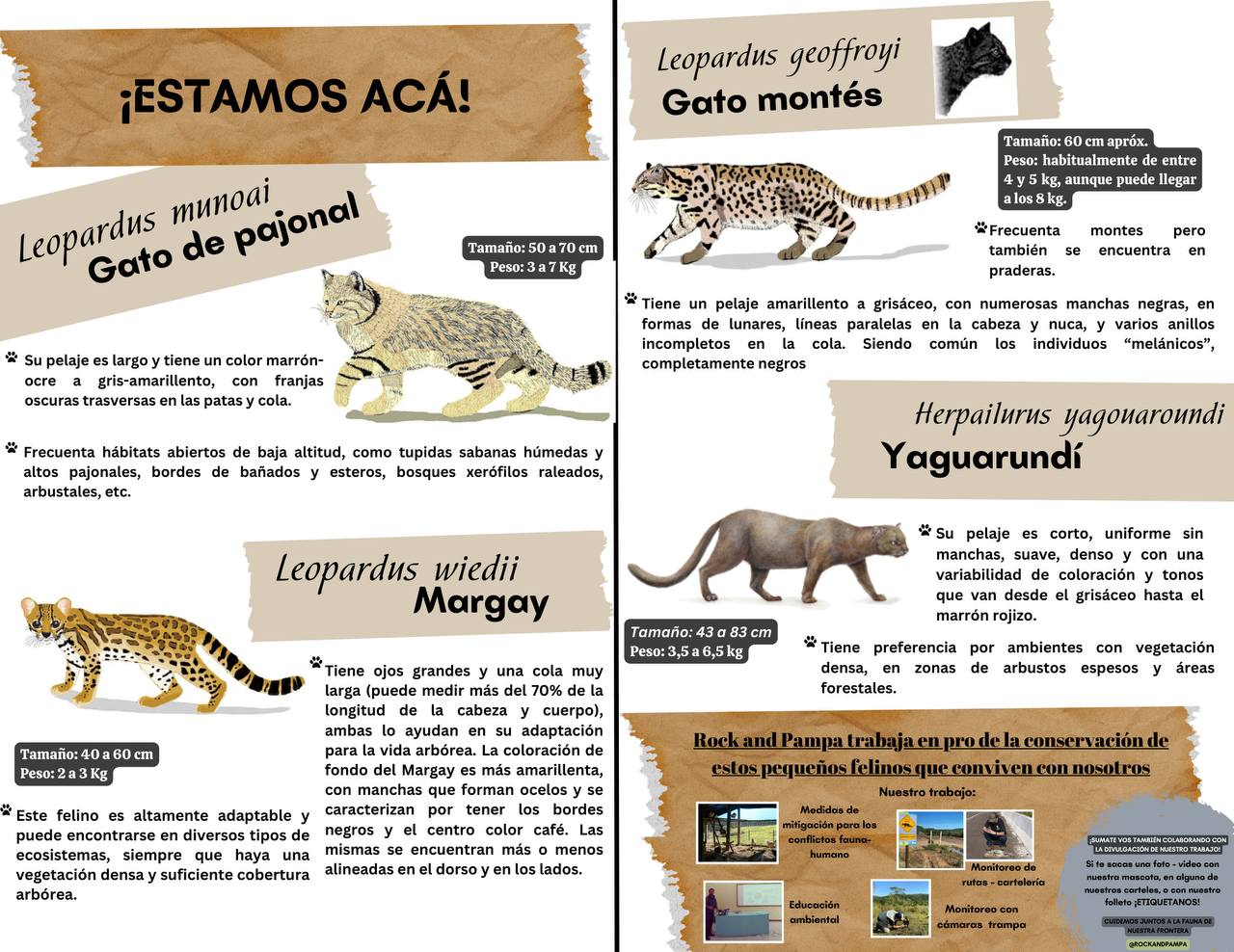
Partnership work